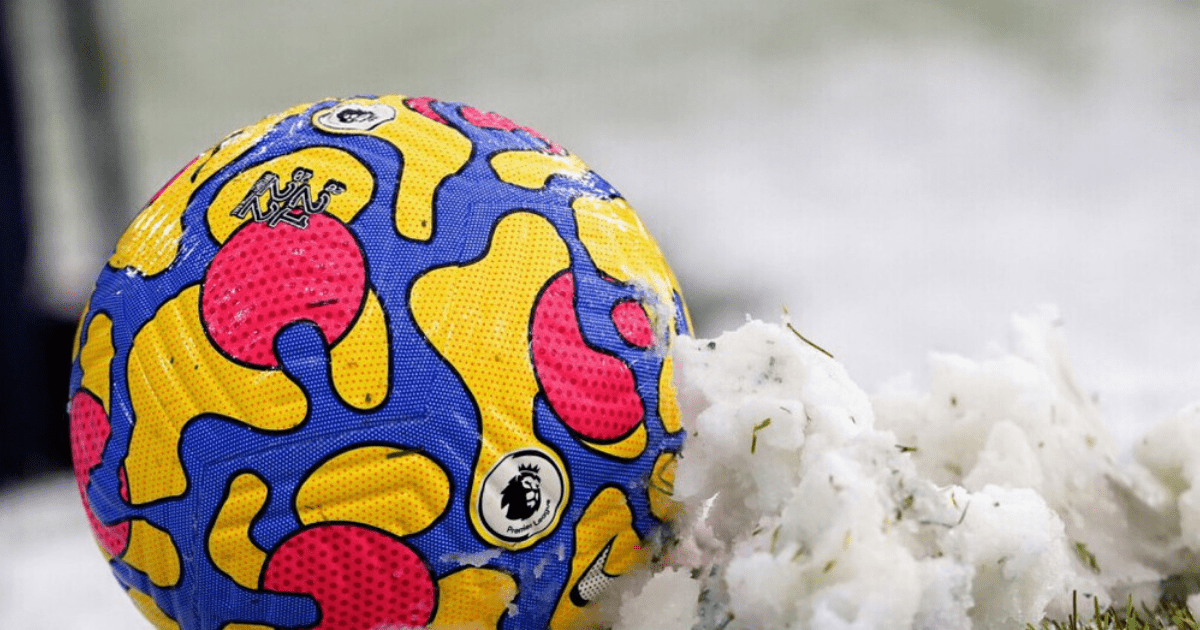The Premier League season is well underway, with teams battling it out for glory at both ends of the table. However, fans may have noticed that only half of the top flight teams will be in action this weekend. So, what's the reason behind this? SunSport has the answer.
Winter break for ten teams
This weekend, there will only be five Premier League fixtures, involving ten teams. The other ten sides will be taking a much-needed winter break after a grueling Christmas period. Gameweek 21 has been split across two weeks, allowing each team to have a weekend off. However, fans can still enjoy limited live football during this time.
When will the remaining fixtures take place?
The five games scheduled for this weekend will take place between January 12 and 14. The remaining five fixtures will then be played between January 20 and 22. Following this short break, the Premier League will return to normal with a full round of fixtures between January 30 and February 1.
Upcoming Premier League fixtures during the winter break
Here are the fixtures for Gameweek 21:
Friday, 12 January
Burnley vs Luton Town – 7.45pm
Saturday, 13 January
Chelsea vs Fulham – 12.30pm
Newcastle vs Man City – 5.30pm
Sunday, 14 January
Everton vs Aston Villa – 2pm
Manchester United vs Tottenham – 4.30pm
Saturday, 20 January
Arsenal vs Crystal Palace – 12.30pm
Brentford vs Nottingham Forest – 5.30pm
Sunday, 21 January
Sheffield United vs West Ham – 2pm
Bournemouth vs Liverpool – 4.30pm
Monday, 22 January
Brighton vs Wolves – 7.45pm
So, while only half of the Premier League teams will be in action this weekend, there is still some exciting football to look forward to. Make sure to mark these fixtures in your calendar and enjoy the winter break refresh before the league returns to its usual schedule.
Frequently Asked Questions
Are there any specific regulations regarding equipment during competitive football matches?
It is true that competitive football matches enforce equipment regulations in order to protect players and maintain the integrity of the game. The laws of the sport stipulate standard equipment like jerseys with sleeve, shorts, socks over shinguards or appropriate footwear. All equipment and accessories that could be dangerous to a player or their opponent are prohibited. Players must adhere to the rules and regulations that vary depending on leagues, age groups, etc. to avoid penalties.
Can the choice of socks impact a football player’s performance?
Absolutely. Football socks have been designed to protect and support a player’s feet when they are playing intensely. They help secure the shin guards in place, prevent blisters by reducing friction, and provide cushioning for the feet. Good football socks will improve a players comfort which will in turn affect their performance.
What kind of goalkeeper gloves provides the best grip and protection?
Goalkeeper Gloves With a Latex Palm Offer the Best Grip Under Different Playing Conditions The thickness and density of the latex can vary to balance grip and durability. Gloves with finger protection systems, such as spines or stiffening material, can also prevent hyperextension injuries. A good pair of gloves should also be comfortable and fit well to enable the goalkeeper to perform at their best.
Do I need to wear specific football clothing, or is it okay to wear other athletic gear?
The clothing for football is different from other athletic wear. This is because it is specifically designed to enhance comfort and performance on the field. Jerseys, shorts, and other clothing are often made of lightweight and breathable materials to allow optimal airflow. This reduces overheating, sweat, and heat. The fit is also tailored to enable a full range of motion, which can improve your overall agility and response times during play.
How do I ensure the proper fit for my football boots?
For a proper fit, your football boots should be snug, but not too tight. This will allow for movement, without allowing the foot to slide inside the boot. There should be about a thumb’s width of space between the toes and the front of the boot to avoid cramming the toes when running or kicking. You should also consider your foot width and choose a boot that fits narrow or wide feet. It’s important to try on the boots with your football socks on and fully lacing them up.
Statistics
- A survey found that nearly 80% of football players believe that high-quality football socks are essential for optimal performance.
- Approximately 40% of amateur football players wear boots that are not properly fitted, increasing the risk of foot injuries.
- Data shows that thermo-bonded footballs, known for their consistent performance, are preferred by 65% of professional football clubs for matches.
- Over 90% of professional football players wear boots with synthetic uppers for better performance and durability.
- Research has indicated that around 60% of football-related ankle injuries could be mitigated with the correct choice of footwear.
External Links
fifa.com
soccer.com
nike.com
uksoccershop.com
prodirectsoccer.com
How To
How To Fit A Football Helmet Correctly
It is vital that the football helmet fits properly to ensure safety. The jaw pads should be snugly against the cheeks. The chinstrap should be placed centrally, and it should be tightened to the point that not more than one hand can fit between strap and chin. Always check for stability; the helmet should not rotate on the head or slide down over the eyes when jostled. You should always seek professional advice when you first fit a headgear to ensure maximum safety.
Did you miss our previous article…
https://www.sportingexcitement.com/football/premier-league/eddie-howe-slams-tv-companies-for-inconsiderate-scheduling-of-newcastles-fa-cup-clash/

